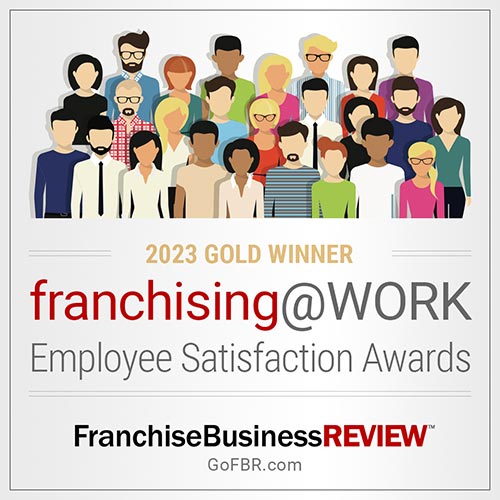Why SEO for a franchise website is important for franchise development.
Everybody seems to agree that you need to “do SEO” on your franchise development website. But what exactly is SEO for franchise websites, and how can it help your franchise development program?
In working with franchise development clients, we have found that more than 50% of all franchise development leads come from organic traffic. And if you are not advertising, 100% of your leads would be from organic traffic. The bottom line is that SEO only matters if you want leads.
Now are you ready to learn about SEO? Here is a crash course in SEO for franchise development.
What is SEO?
SEO stands for search engine optimization. SEO is simply making your website as effective as possible at gaining internet users who are searching for whatever you have to offer – in this case, a franchise opportunity. Optimization includes both back-end, technical adjustments that improve the user experience and content that makes your website relevant to users. So, why doesn’t everyone just optimize their sites and get it over with?
The reason that SEO is challenging is that Google – the main player in the search engine world – is continuously updating its algorithms and expectations, so what you need to do to optimize your website changes frequently. In essence, SEO specialists are trying to hit a constantly moving target.
How does SEO help franchise development?
When a prospective franchisee starts researching brands, he or she might type a question into Google’s search bar. Depending on what they’re looking for, they could ask something like, “What’s a great, low-cost franchise?” In less than a second, Google provides a page full of answers. That’s called the “search engine results page” (SERP).
The SERP has three main components:
- Ads: At the top of the page, the user will find ads bought by franchisors like you who are trying to attract the best candidates. Those franchises bought keywords and search terms that they anticipate their ideal candidates will search for. The cost of those ads depends on how many advertisers bought the same words or phrases that you did.
- Knowledge panel: Next on the page, you’ll find what Google calls the “knowledge panel,” an information box. It’s designed to answer your question at a glance. For a question about “low-cost franchises,” the knowledge panel may quote a blog or article about top-ranked franchises that have low start-up costs.
- Organic results: Below the knowledge panel, the user will see pages that Google has deemed so relevant to what the user is searching for, they are shown as top answer providers. Strong SEO will help your website appear in this section at no cost to you. That’s the point of SEO: It helps people who are searching for your offering – whether it’s a franchise opportunity, product or service – find you easily. If they are searching for franchises like yours, it is logical to assume that they really are interested in buying.
Can I do SEO myself?
You can, but remember that SEO is not a set-it-and-forget-it kind of thing. What Google expects of websites changes constantly, so one big part of SEO involves keeping up with technological and user experience improvements. For example, because of the proliferation of mobile devices, Google penalizes websites that are not mobile-friendly.
There are many technical aspects of SEO. Here are the high-level, easy to identify items:
- Make sure each page has only one h1 (main heading). Often, designers like to have all headlines look big and bold, however search engines look at the <h1> to determine what the page is about. Think of it as the title of the page.
- Check that all of your pages have defined meta titles and descriptions and none of them are duplicates. Often, web developers will overlook this and build in default meta tags for every page, blog post, etc. This is important because this is the information that shows on the SERP when a user searches. You want users to click through to your site after reading the meta title and description.
- All of your images should have alt text, which is a description of the image to be used not only by search engines to index the image, but also by screen readers for users who are vision-impaired. Not only should this be important to your SEO strategy, but also in making your website ADA-compliant.
The other main aspect of SEO is content. Website content should be relevant, rich in keywords and terms, useful and readable.
Several years ago, when people were just starting to understand SEO, they tried to outsmart Google by littering their webpages with all of the keywords and terms that they thought their target audience would search for. The result was that the keywords were there, but they didn’t make any sense.
PSA: Google is smart! Today, websites that contain poorly written content are penalized.
How do I SEO my content?
Assuming your website is up-to-date and mobile-friendly, the best way to improve your SEO ranking is to focus on filling your website with smart, well-written content. Use your company’s best writer, or hire one who’s familiar with SEO, to fill pages about your brand, the franchise opportunity, the industry you’re in, startup costs and more with relevant keywords and terms.
You might also consider starting a blog to share good news about your franchise, success stories and other information that would be of interest to a prospective franchisee. Posting blogs regularly – whether once per month or once per week – helps keep content fresh and can add pages of keyword-rich content.
If you’re having problems coming up with content to write about, think about your ideal franchisee. Make a list of your top 10 or 20 franchisees and interview them. Ask them why they chose your brand, how they handle day-to-day and what success means to them. Not only will this spark some ideas for blog topics, but it also will help you create a candidate persona, which should help define targeting for advertising as well as content for creative pieces.










